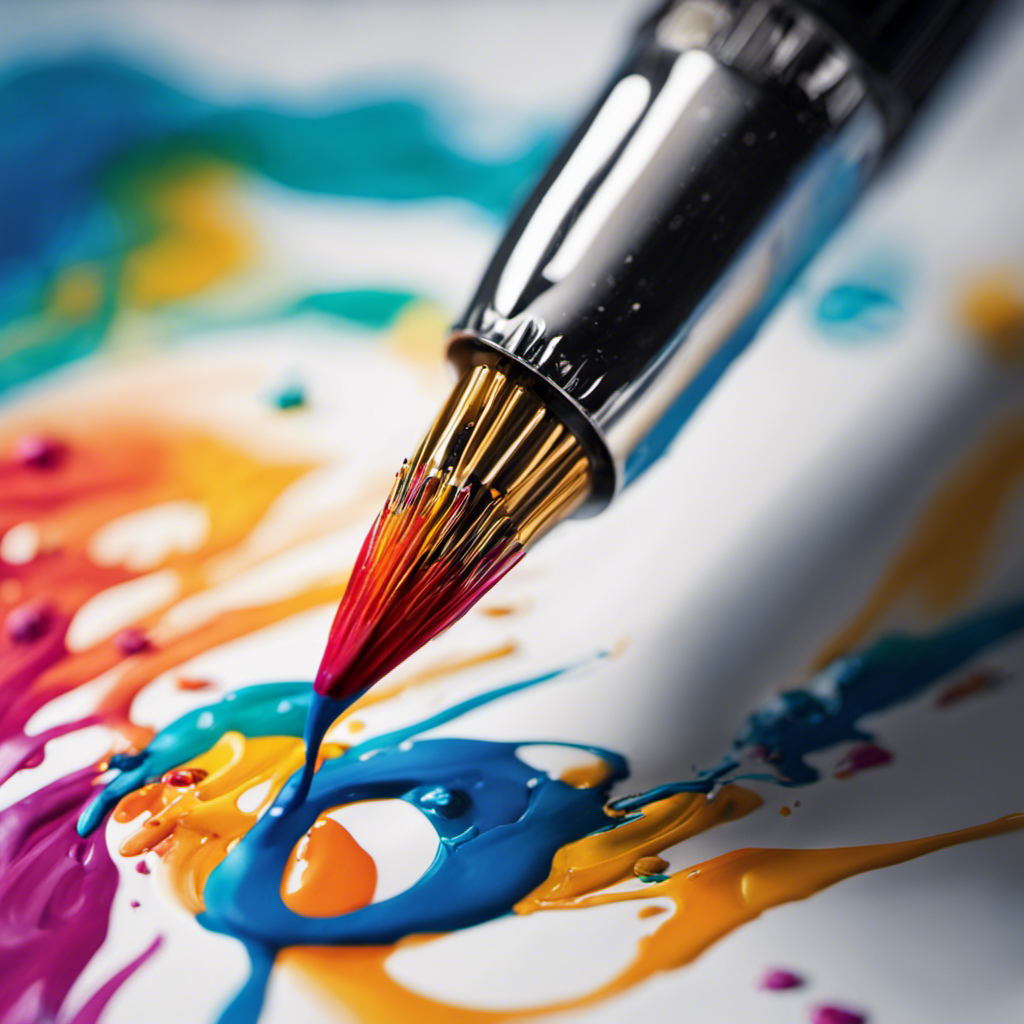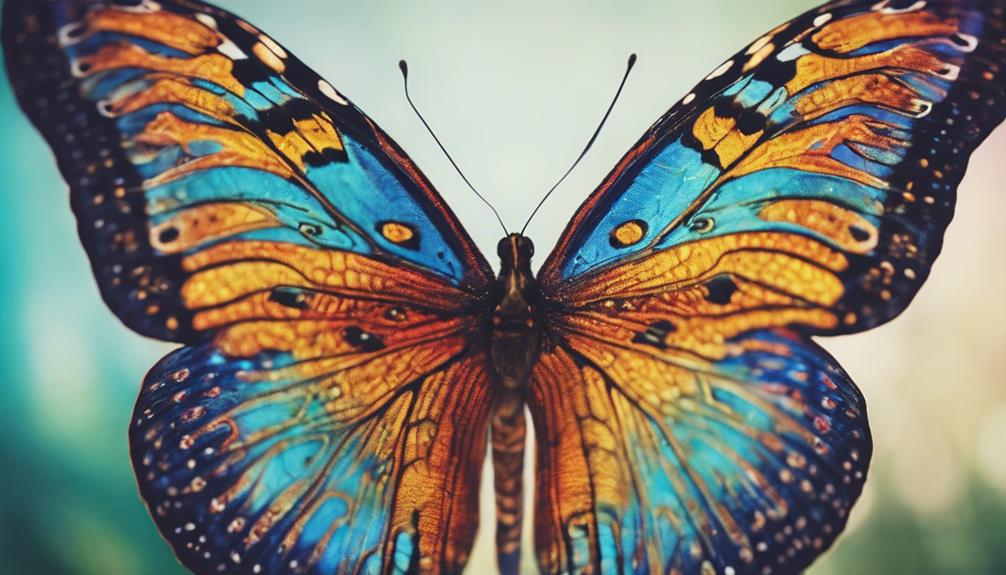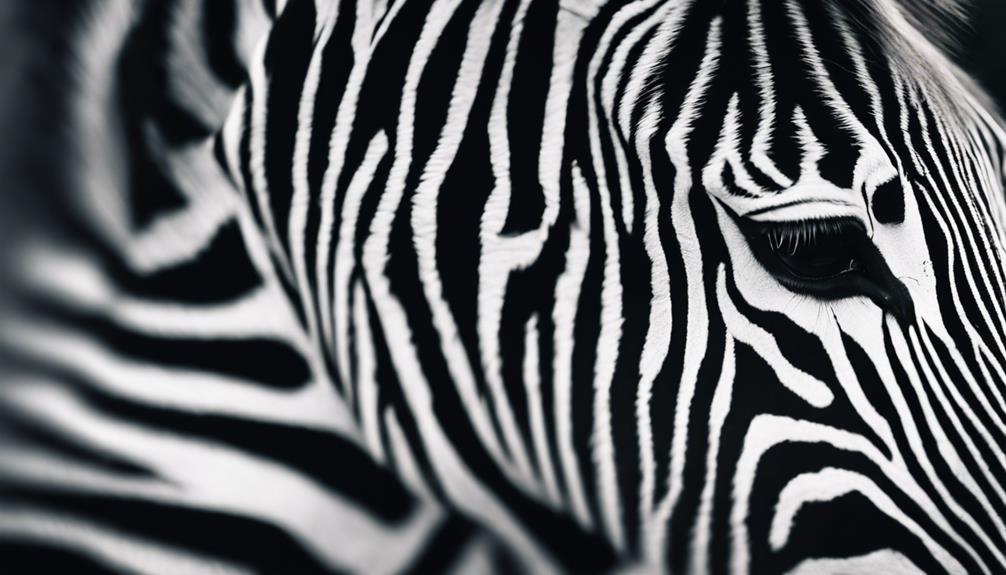Are you ready to embark on a poetic journey like no other? Get ready to be amazed by the hidden wonders of poems, as we dive into the enchanting world of ‘Fun Facts About Poems.’
Brace yourself for a rollercoaster ride through time and culture, uncovering surprising origins and the scientific magic behind these lyrical masterpieces.
From famous poets to the impact on society, this article will immerse you in the captivating realm of poetry, where expression knows no bounds.
So come along and belong to this extraordinary exploration!
Key Takeaways
- Poetry has therapeutic benefits for physical and emotional healing.
- Poetic forms have evolved through constant experimentation and innovation.
- Famous poets and their works utilize symbolism to convey deeper meanings.
- Poems add depth and meaning to storytelling in movies.
The Power of Poetry
Poetry’s power lies in its ability to evoke strong emotions and connect you on a deeper level. It has therapeutic benefits that can heal wounds, both physical and emotional.
When you read or write poetry, it becomes an outlet for your thoughts and feelings, allowing you to express yourself in ways that might not be possible through regular conversation.
Poetry can be a form of self-reflection, helping you navigate through life’s challenges. In education, poetry plays a crucial role by enhancing language skills and fostering creativity. It encourages critical thinking and empathy as you analyze the meaning behind each line.
Through poetry, you can find belonging within a community of fellow poets who share similar experiences and emotions. So embrace the power of poetry; let it guide you on a transformative journey towards self-discovery and connection with others.
Poetry Through the Ages
Welcome to the fascinating world of poetry! In this discussion, we will delve into influential poetic movements and the evolution of poetic forms.
Get ready to explore how different styles, techniques, and cultural shifts have shaped the way we express ourselves through verse. From the romanticism of the 19th century to the experimentalism of contemporary poetry, you’ll discover how these movements have revolutionized the way we perceive and engage with language.
Influential Poetic Movements
One of the most influential poetic movements in history is Romanticism. It emphasized individual expression and the power of imagination. During this time, poets rebelled against the strict rules and structures of traditional poetry, giving birth to a new era of creativity and self-expression.
Here are three key influential poetic movements that shaped the course of literature:
-
Modernist Revolution: In the early 20th century, poets like T.S. Eliot and Ezra Pound challenged conventional forms and experimented with language. They pushed boundaries and explored new ideas.
-
Romantic Rebellion: The Romantics, such as William Wordsworth and Samuel Taylor Coleridge, rejected societal norms. They celebrated nature’s beauty while delving into human emotions with passion and intensity.
-
Beat Generation: Led by Allen Ginsberg and Jack Kerouac in the 1950s-60s, this movement rejected materialism in favor of spiritual exploration and personal freedom.
These movements revolutionized poetry by breaking away from tradition, inspiring generations to come.
Evolution of Poetic Forms
The evolution of poetic forms has been marked by a constant experimentation and innovation, resulting in a diverse range of styles and structures.
From the origins of haiku, with its three-line structure capturing vivid moments in nature, to the bold movements of Modernism in poetry that shattered traditional conventions, poets have pushed boundaries to express their unique perspectives.
Haiku originated in Japan as early as the 9th century and became popularized worldwide for its concise and evocative nature.
Meanwhile, Modernism emerged in the early 20th century as a response to societal changes, embracing themes of individuality and fragmentation. Poets like T.S. Eliot and Ezra Pound revolutionized the form through unconventional techniques such as free verse and stream-of-consciousness writing.
Through these innovations, poets have continuously reinvented poetic forms to reflect the ever-changing human experience.
Famous Poets and Their Works
Welcome to the fascinating world of poetry! In this discussion, we will delve into the realm of influential poetic masterpieces and discover some hidden gems along the way.
Prepare to be captivated by the power of words as we explore renowned works that have shaped literary history, as well as uncover lesser-known treasures that are waiting to be appreciated.
Get ready to embark on a journey where creativity knows no bounds and imagination takes flight!
Influential Poetic Masterpieces
Influential poetic masterpieces have shaped the course of literature throughout history. These powerful works of art have captivated audiences and left a lasting impact on our understanding of language and emotions.
Here are three key aspects that make these masterpieces so remarkable:
-
Symbolism in poetry: Many influential poems utilize symbolism to convey deeper meanings and evoke strong emotions. Through carefully chosen words and metaphors, poets create a world of symbols that invite readers to interpret their work in unique ways.
-
Revolutionary poets: These masterpieces often come from revolutionary poets who challenge societal norms and push the boundaries of what is considered acceptable. Their boldness and willingness to question authority make their poetry not only impactful but also thought-provoking.
-
Timeless relevance: Despite being written centuries ago, influential poetic masterpieces continue to resonate with readers today. They address universal themes such as love, loss, nature, and the human experience, making them relatable across different cultures and generations.
Lesser-Known Poetic Gems
Let’s explore some hidden poetic gems that may not be as well-known but are just as deserving of recognition. These influential but overlooked poems have the power to touch your soul and ignite your imagination. They hold the key to unlocking emotions and healing wounds, for poetry plays a profound role in therapy.
In this vast realm of words, there are countless masterpieces waiting to be discovered by those seeking solace and connection. From Rumi’s mystical verses to Emily Dickinson’s introspective musings, these lesser-known poetic gems offer a refuge for the restless heart.
Immerse yourself in the raw beauty of Pablo Neruda’s love sonnets or dive into Langston Hughes’ powerful exploration of identity. Let these words dance on your tongue and resonate within you, creating a sense of belonging in a world often filled with chaos.
Surprising Origins of Poetic Forms
Did you know that the sonnet, a popular poetic form, originated in Italy during the Renaissance? It’s fascinating to discover how certain poetic forms have surprising origins and influences.
Here are three lesser-known poetic traditions that you might find intriguing:
-
Haiku: This traditional Japanese form consists of three lines with a 5-7-5 syllable structure. Its roots can be traced back to ancient tanka poetry, which was eventually condensed into this concise format.
-
Ghazal: Originating in Arabic poetry, this form features rhyming couplets and a refrain at the end of each line. It later spread to Persia and India, where it became an integral part of their literary traditions.
-
Villanelle: This intricate form is characterized by its repetitive nature, with specific lines repeating throughout the poem. It first appeared in French poetry before gaining popularity among English poets like Dylan Thomas and Sylvia Plath.
Exploring these forgotten poetic traditions can provide a sense of belonging to a rich global community of writers throughout history.
The Impact of Poetry on Society
Now that you’ve learned about the surprising origins of poetic forms, let’s delve into the transformative power of poetry in society.
Poetry plays a vital role in education, allowing us to explore emotions and perspectives through rhythmic words. It has the ability to ignite our imagination, sparking creativity and critical thinking.
In classrooms, poetry provides a safe space for self-expression and fosters empathy among students, creating a sense of belonging within the learning environment.
Moreover, poetry serves as a therapy tool, helping individuals navigate their emotions and heal from past traumas. Through the cathartic process of writing or reciting poems, people can find solace and connect with others who have shared similar experiences.
The impact of poetry extends far beyond its beautiful verses; it cultivates empathy and resilience within our society as we strive for unity and understanding.
Unusual Poetry Techniques and Styles
Have you ever tried experimenting with unconventional poetic techniques and styles to add a unique flair to your writing? Poetry is all about creativity and self-expression, so why not push the boundaries and explore new ways of crafting your verses?
Here are three unusual poetry techniques and styles that can take your words to another level:
-
Concrete Poetry: This style uses visual elements to enhance the meaning of the poem. Experiment with shaping your words into images or arranging them in specific patterns on the page.
-
Surrealism: Dive into the realm of dreams and unconscious thoughts by incorporating surrealistic elements into your poems. Let your imagination run wild, creating unexpected connections and juxtapositions.
-
Sound Poetry: Focus on the auditory experience of your poem by playing with rhythm, repetition, and phonetic sounds. Embrace the musicality of language and let it guide you towards new poetic possibilities.
Poetry in Different Cultures
Immerse yourself in the rich tapestry of poetry from different cultures, and discover the diverse ways in which words can beautifully express emotions and ideas. Poetry holds a deep cultural significance, serving as a window into the traditions and values of various communities around the world.
From ancient Japanese haikus to African oral traditions, each culture has its own unique way of crafting verse that reflects their beliefs and experiences.
Traditional poetic forms play a crucial role in preserving cultural heritage. In China, for example, the classical form of poetry known as shi has been passed down for centuries. Its strict structure and rhythmic patterns allow poets to convey complex emotions within concise verses. Similarly, Persian ghazals offer a glimpse into the romanticism and mysticism of Middle Eastern cultures.
By exploring poetry from different cultures, you not only gain a deeper appreciation for language but also develop a sense of connection with people across time and space.
Poetry as a Form of Expression
Exploring poetry from different cultures allows us to connect with people across time and space through the power of language. Poetry has always served as a powerful form of expression, offering therapeutic benefits and promoting emotional well-being.
Here are three ways in which poetry can be a transformative experience:
-
Healing through words: Poetry provides an outlet for self-expression and can help individuals navigate their emotions, heal from trauma, and find solace in difficult times.
-
Empowerment through spoken word: Spoken word performances bring poetry to life, allowing poets to use their voice as a tool for social change and empowerment. Through captivating performances, they create a sense of community and inspire others to find their own voice.
-
Bridging cultural divides: Poetry transcends borders, allowing us to understand different perspectives and foster empathy across diverse cultures. It gives voice to marginalized communities, amplifying their stories and experiences.
The Science Behind Poetry
You can gain a deeper understanding of the therapeutic benefits of poetry by exploring the science behind how it affects your brain and emotions.
The psychology behind poetry reveals that when you engage with poetry, it activates various regions of your brain associated with language, memory, and emotion. As you read or write poetry, neural connections are strengthened, leading to improved cognitive function and emotional well-being.
Writing poetry specifically has been found to be particularly beneficial for mental health as it allows for self-expression and reflection. It serves as a creative outlet through which you can explore your thoughts and feelings, helping you make sense of complex emotions and experiences.
Poetry in Pop Culture
Welcome to the fascinating world of poetry in pop culture! In this discussion, we will explore two key points: poems in movies and poetry in music.
Prepare to be amazed as we delve into the beautiful synergy between these art forms and how they enhance our cinematic experiences and musical journeys.
Get ready to discover the power of words fused with visuals and melodies, creating a unique sensory experience that captivates both our hearts and minds.
Poems in Movies
If you’re a movie lover, you’ll be delighted to know that poems have made their way into many films. They add depth and meaning to the storytelling, creating an emotional connection with the audience.
Here are three examples of how poems have been incorporated in movies:
-
‘Dead Poets Society’: This iconic film explores the power of poetry as a means of self-expression and rebellion against societal norms.
-
‘The Shawshank Redemption’: In this powerful drama, a poem by William Ernest Henley called ‘Invictus’ becomes a symbol of hope and resilience for the characters.
-
‘Eternal Sunshine of the Spotless Mind’: Through poetic symbolism, this film delves into themes of love, memory, and emotional healing.
These movies demonstrate how poems can enhance cinematic narratives by evoking emotions, conveying deeper meanings, and allowing viewers to explore profound aspects of the human experience.
Poetry in Music
Music often incorporates poetic elements such as metaphor, imagery, and rhyme to create a powerful emotional impact on you. When you listen to a song, you are transported to another world where the lyrics speak directly to your heart and soul.
The influence of lyrics in music is undeniable. Through exploring poetic elements, musicians are able to express their deepest emotions and connect with listeners on a profound level. As you listen to the words of a song, you may find yourself resonating with the experiences and feelings being portrayed.
The beauty of music lies not only in its melodies but also in its ability to communicate universal truths through poetic expression. So next time you’re listening to your favorite songs, take a moment to appreciate the poetic genius behind the lyrics that touch your soul.
Frequently Asked Questions
How Can I Improve My Own Poetry Writing Skills?
To improve your poetry writing skills, try these tips for beginners: read widely, experiment with different styles, and practice regularly. Overcoming writer’s block? Techniques like freewriting and brainstorming can help. Keep pushing yourself to grow!
What Are Some Common Themes Found in Poetry?
When exploring poetry, you’ll find common themes like nature and love. But did you know poems also delve into social issues and politics? They’re powerful tools that express our collective experiences. Join the conversation!
Can Poetry Be Considered a Form of Therapy?
Poetry can be a powerful form of therapy, tapping into the healing power of words. The science of poetry shows how it can help you express emotions, gain insight, and find solace in a community that understands.
Are There Any Famous Poems That Were Initially Rejected or Criticized?
Did you know that famous poems, which are now celebrated, were once rejected or criticized? The impact of rejection on poets can be profound, fueling their determination to prove the critics wrong and find their place in literary history.
How Has the Rise of Technology Affected the Popularity of Poetry?
The rise of technology, like social media and digital publishing, has made poetry more accessible and widespread. You can now share your poems with the world and connect with a global community of poets.
Conclusion
Congratulations! You’ve just delved into the captivating world of poetry.
Through this journey, you’ve discovered the power and impact of poems throughout history and across cultures.
From famous poets and their works to surprising origins of poetic forms, you’ve unlocked a treasure trove of knowledge.
As you reflect on the science behind poetry and its presence in pop culture, remember that this art form is not only expressive but also thought-provoking.
So go forth, embrace the beauty of words, and let your own poetic voice be heard!





